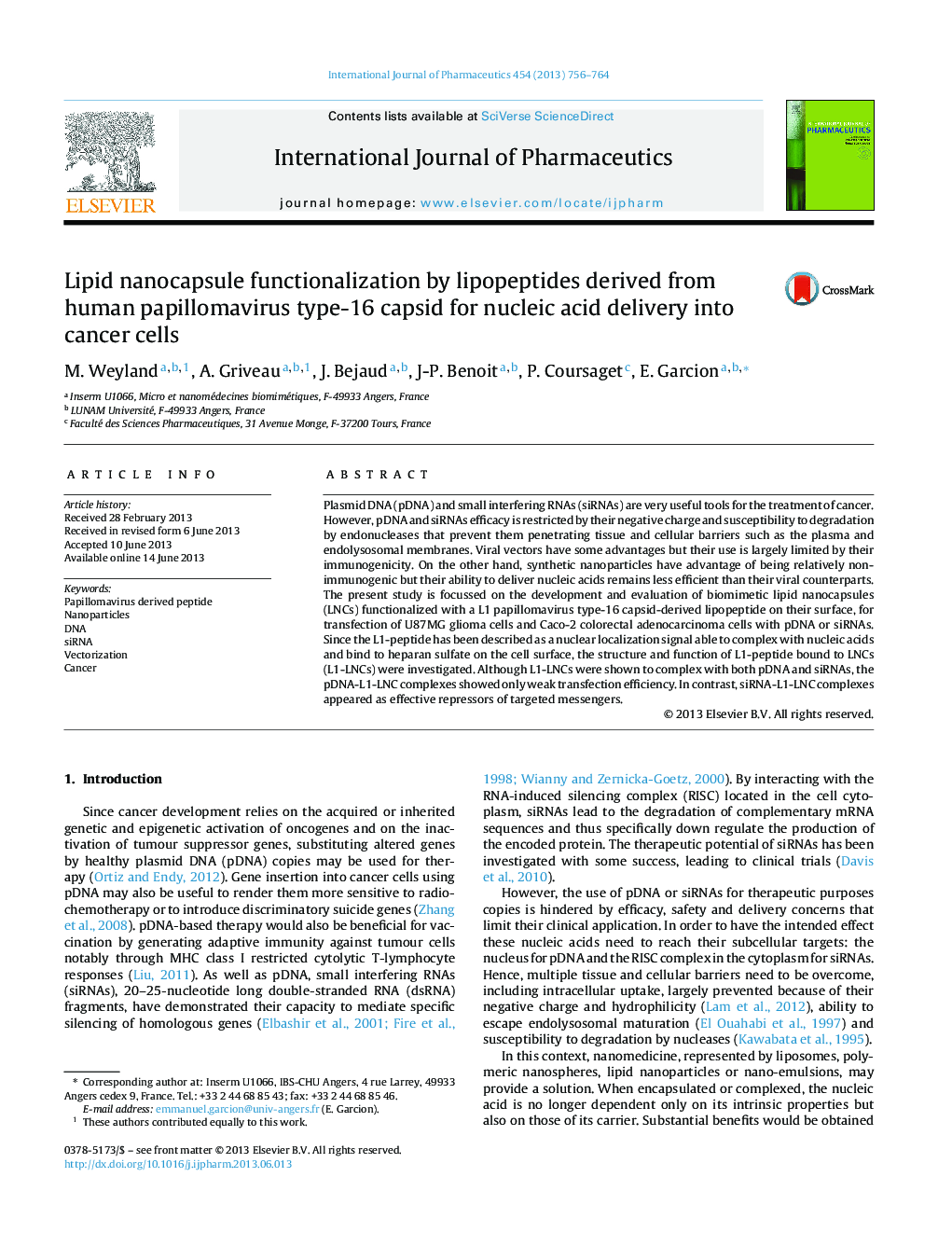| Article ID | Journal | Published Year | Pages | File Type |
|---|---|---|---|---|
| 5820198 | International Journal of Pharmaceutics | 2013 | 9 Pages |
Plasmid DNA (pDNA) and small interfering RNAs (siRNAs) are very useful tools for the treatment of cancer. However, pDNA and siRNAs efficacy is restricted by their negative charge and susceptibility to degradation by endonucleases that prevent them penetrating tissue and cellular barriers such as the plasma and endolysosomal membranes. Viral vectors have some advantages but their use is largely limited by their immunogenicity. On the other hand, synthetic nanoparticles have advantage of being relatively non-immunogenic but their ability to deliver nucleic acids remains less efficient than their viral counterparts. The present study is focussed on the development and evaluation of biomimetic lipid nanocapsules (LNCs) functionalized with a L1 papillomavirus type-16 capsid-derived lipopeptide on their surface, for transfection of U87MG glioma cells and Caco-2 colorectal adenocarcinoma cells with pDNA or siRNAs. Since the L1-peptide has been described as a nuclear localization signal able to complex with nucleic acids and bind to heparan sulfate on the cell surface, the structure and function of L1-peptide bound to LNCs (L1-LNCs) were investigated. Although L1-LNCs were shown to complex with both pDNA and siRNAs, the pDNA-L1-LNC complexes showed only weak transfection efficiency. In contrast, siRNA-L1-LNC complexes appeared as effective repressors of targeted messengers.
Graphical abstractDownload high-res image (189KB)Download full-size image
